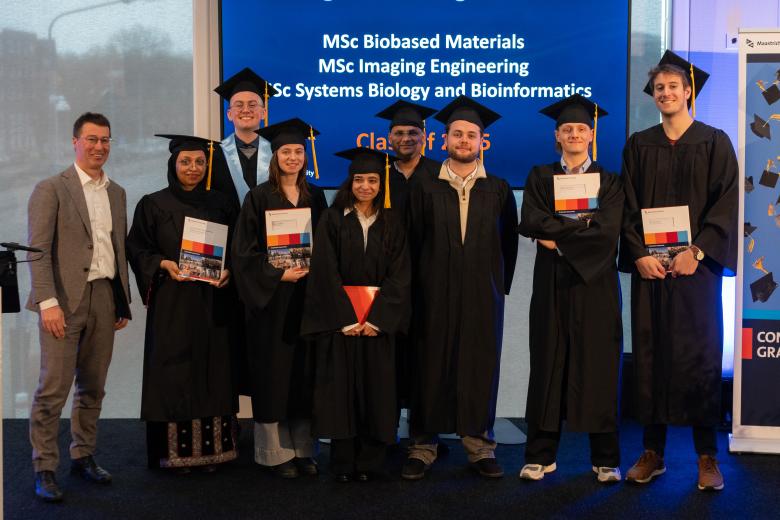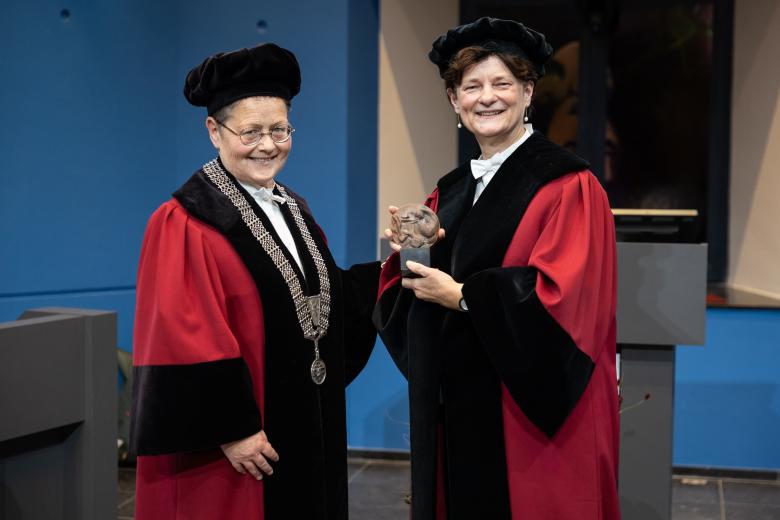Regenerative medicine collab receives millions for developing smart materials
The DRIVE-RM consortium, including UM-professor Clemens van Blitterswijk and his team, has been awarded €37.5 million under the prestigious NWO SUMMIT program. The SUMMIT grant recognizes world-class collaborations, while further strengthening these partnerships. The DRIVE-RM collaboration involves UMC Utrecht, Utrecht University, Eindhoven University of Technology, Maastricht University, and the Hubrecht Institute, focusing on smart materials that assist the body in healing.
Regenerative medicine
Regenerative medicine involves repairing or replacing damaged tissues and organs by leveraging the body's own healing processes. DRIVE-RM specifically focuses on material-driven regeneration, using intelligent, lifelike, or even living materials that can prompt the human body to generate new tissue. The DRIVE-RM consortium focuses on developing new treatments for heart failure, kidney failure, and disorders of bones, cartilage, and joints. "Currently, tens of thousands of patients a year are treated in the field of spinal surgery with material from our lab," says Clemens van Blitterswijk. "It is our hope and expectation that more such new indications will be developed within the SUMMIT application in the coming years."
Five know more than one
The involved institutes have been collaborating for some time, resulting in valuable innovations. DRIVE-RM is therefore led by five outstanding scientists, all experienced in leading innovative research projects. In addition to Clemens van Blitterswijk, who focuses on tissue technology and biomaterials, the team contains Carlijn Bouten (TU/e, cardiovascular regeneration and tissue technology), Jos Malda (Utrecht University and UMC Utrecht, biofabrication and bone/cartilage regeneration), Jeroen Bakkers (Hubrecht Institute and UMC Utrecht, regenerative biology and heart regeneration), and Marianne Verhaar (UMC Utrecht, kidney and vascular regeneration).
Recognition as world leaders
The NWO SUMMIT program targets top-tier collaborations and facilitates world-class breakthroughs. The project leader of DRIVE-RM is Marianne Verhaar, nephrologist and professor of Experimental Nephrology at UMC Utrecht. “Over the past 20 years, we have established strong collaborative efforts in regenerative medicine in the Netherlands with several large, innovative, and successful projects like the MDR Gravitation consortium", she states. "The SUMMIT grant is a wonderful recognition of this work and underscores the importance of regenerative medicine as a leading field in the Netherlands.”
Also read
-
Green school playgrounds boost concentration and wellbeing
Children at schools with green playgrounds are better able to concentrate and display more social behaviour. This is the conclusion of a follow-up study within the long-running project The Healthy Primary School of the Future .
-
Ron Heeren appointed fellow of the Netherlands Academy of Engineering
Professor Ron Heeren, distinguished university professor at Maastricht University (UM) and director of the Maastricht MultiModal Molecular Imaging Institute (M4i), was appointed as a fellow of the Netherlands Academy of Engineering (NAE) on Thursday 11 December.
-
Prof. dr. Mirjam oude Egbrink awarded MUMC+-medal
During her farewell lecture on Friday, 28 November, Prof. Mirjam Oude Egbrink was awarded the MUMC+ medal by Dean Annemie Schols for her distinguished career.